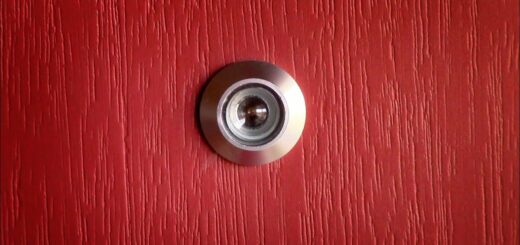Review: One Man Two Guvnors
In a marvellous effort to bring the nation together, the National Theatre has broadcast a recording of One Man Two Guvnor’s as part of its National Theatre At Home series. This recording from James Corden’s Tony award-winning 2011 performance was broadcast via YouTube live on Friday 2nd April at 7 pm, and is available on-demand until next Friday when they will broadcast the next play in the series, Jane Eyre.
One Man Two Guvnors starts off feeling odd. If you’re used to film and television acting, the style seems off: stilted and over the top. It takes you a while to settle into this. It’s not until the second half, when James Corden’s character, Francis, outright tells you that this is, in fact, Commedia del Arte and he is Harlequin, that it all begins to drop into place. Commedia del Arte is one of the earliest schools of acting, originating in 16th century Italy, and it directly led to many forms of theatre, including the French farce, the English pantomime and, weirdly enough, Punch and Judy. It is the pantomime that will most clearly give you a sense of the play. Take the Christmas tradition of audience participation, set pieces and ludicrous, over the top characters. Now add a plot and a slight sense that this is all quite intelligent, even if the actors seem to effortlessly make it look as if they’re making it up as they go along. This is One Man Two Guvnors.
Perhaps the closest thing I’ve seen to One Man Two Guvnors is the antics of Mischief Theatre and their many variations on the Play That Goes Wrong. In those productions, the conceit is that the actors and crew are not actually very good, that the chaos is of their own making as they attempt to take on a production too big for their own talents. In One Man Two Guvnors, there is a sense that many of the actors are in on the conceit. It takes the chaos of the set pieces so well executed by Mischief Theatre, but drives them via the characters rather than via the actors so that the actors can step back and give a knowing wink to the audience.
Audience participation is also a good part of the play. For a play clearly based in a 16th-century art form, it feels surprisingly on-trend, cashing in on the current predilection for improvisation and interactive theatre.
James Corden is particularly good in his role as Harlequin. The character is ludicrous and one dimensional: a clown who is so stupid he can’t even remember which of his two bosses has just given him an order, and driven only by food and love, possibly but not necessarily in that order. Yet Corden makes him both believable and likeable, with a sweetness that has you rooting for him to win the day right up to the very end.
Another strong performance comes from Daniel Rigby’s Alan. A lanky man-child, whose belief that he is a great actor is undercut by his inability to spout anything but doggerel while posturing wildly. Much of the humour comes from Rigby’s hilariously intensity coupled with his wildly gesticulating body. It is as though Gielgud’s head has been transplanted atop of John Cleese (with Richard Beckinsale’s hair thrown in for good measure).
Moving on to the supporting characters, Suzie Toase as Dolly and Oliver Chris as Stanley are great. Dolly is just the right amount of sass, and Oliver Chris seems to have been born to play the upper-class idiot Stanley. Characters such as Charlie the Duck and Harry Dangle, on the other hand, seem only to exist to fulfil the archetypes of Commedia Del’Arte that the play is based on. Harry, for instance, exists only to spout inappropriate Latin, a joke which wears thin after only the second or third repetition. Charlie, on the other hand, is almost non-existent. This is the most disappointing aspect of the show. Charlie should be integral to the plot as the father of Pauline, who he has managed to get engaged to two men, one the aforementioned Alan and the other the infamous gangster Roscoe, who is actually Rachel, twin sister of Roscoe and lover of Stanley, who is Roscoe’s murderer, who everyone thinks is not actually dead because Rachel, unknown to Stanley, is pretending to be him. Yes, its that kind of play.
All in all, this is a marvellous play. It’s a little long, at two hours and forty minutes, and you might want to fast forward through some of the interludes with the skiffle band (we certainly did), but all in all its a play that leaves you feeling better for having watched it. Even if you don’t consider yourself a theatre fan, this feels sharp and contemporary. It also bodes well for the rest of the series. Treat yourself to a little culture this Friday night.
After all, what else are you going to do?





Recent Comments